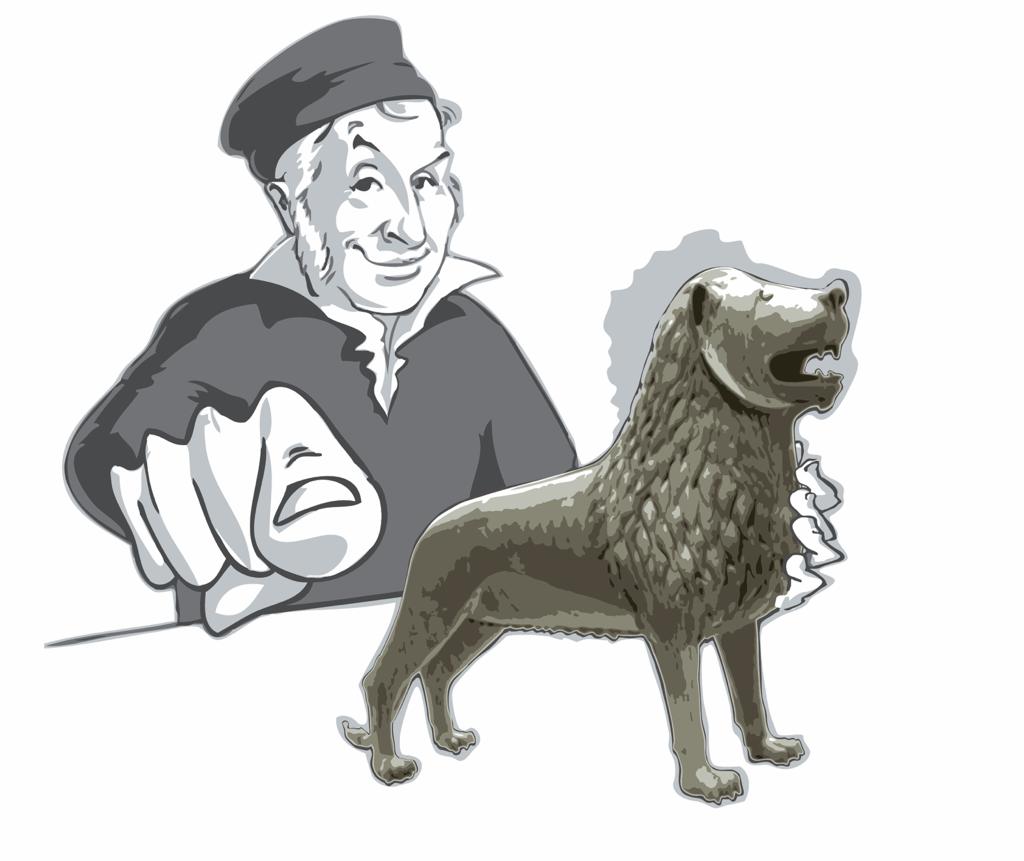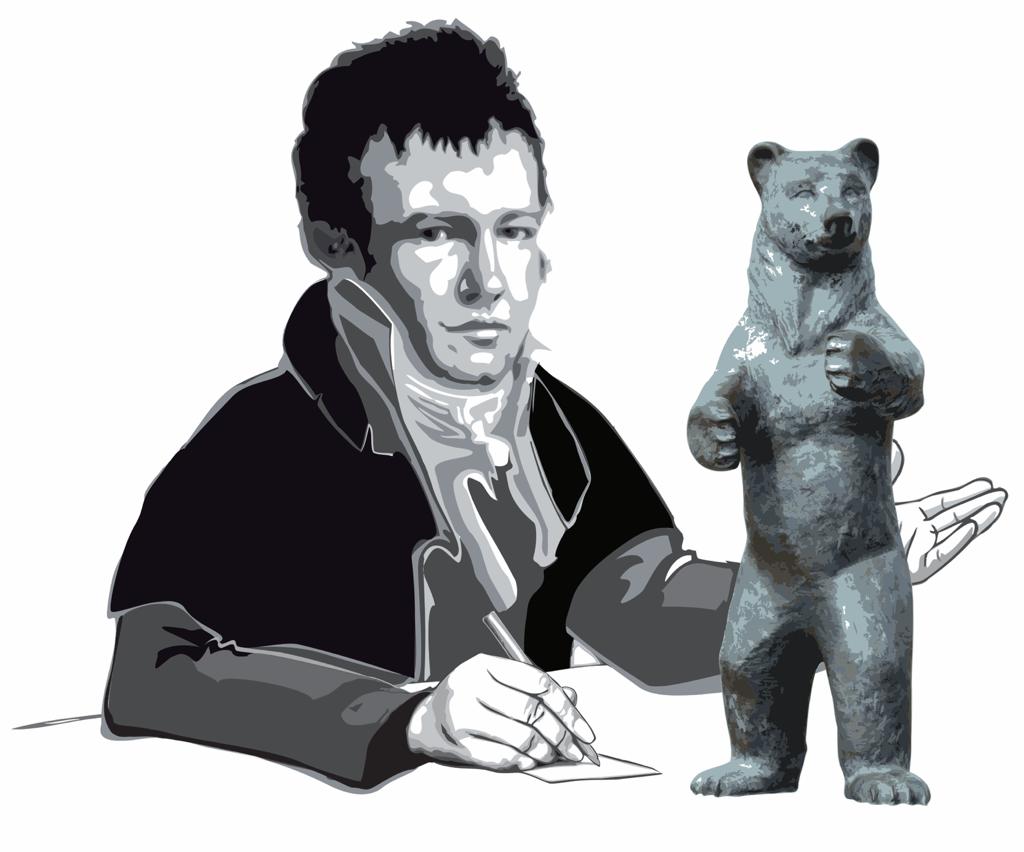Gauss-Telegraph: 17 international people in Braunschweig – Younouss Wadjinny
by Lena Heinecke

- Younouss, how did you get the idea to found the Gauss Friends? Why did you call the association Gauss Friends?
It was a long process altogether. First of all, I wanted to enrich Braunschweig interculturally and offer a space for cultural exchange. In particular, non-European cultures such as India, China, the Muslim, the Persian as well as the Arab world, Africa and Latin America were to be taken into account, since the term “international” had previously often only been associated with other European countries and the USA. International friends should not only be met at parties, but one should also get to know the cultures, i.e. the languages, festivals, food etc. Furthermore I am an interdisciplinary person. I wanted to build bridges between science and other disciplines like history, lectures, art and readings. During my work in the International Office I was also confronted with the various problems of international students. All these experiences were important for the foundation of the Gauss Friends 2008. Gauss is considered a symbol in this context, because he was the most important alumnus of the Braunschweig scientific area, but in Braunschweig, there was no association or similar for Gauss at the time I arrived. There were, however, some events, e.g. in the Landesmuseum, which further increased my interest in C.F. Gauss. All the international students came to Braunschweig because of science, that is, for study and research. They are therefore all friends of Gauss (Gauss Friends).
- How would you describe your feelings on a Gauss evening?
I had mixed feelings, as I was in charge, which of course comes with a lot of pressure. The visitors should be satisfied and new participants should be well integrated. Whoever had problems should be able to find a solution with us. The cooperation with partners like the Studentenwerk or the AStA departments should work well. On the other hand, there is of course a lot of joy, warmth and happiness as well as many great moments. I am proud that so many people have a good time, that they talk and laugh with each other and that so many cultures and celebrations get a space. This shows me that I have reached my goal. I am especially looking forward to the time when I can no longer be there as a staff member but as a visitor and enjoy the time.
- Where are you from? Why did you choose Braunschweig as the place for your stay abroad back then? How long did you live in BS and what fascinates you most about the city?
I am from Morocco and came to Braunschweig on January 17th, 2005 to study mathematics with a minor in philosophy. During the following 15 years (until January 2020), Braunschweig was the centre of my life. My home, my friends and family, my memories, hobbies and work were here, even though I commuted a lot in the last years. What fascinates me most about the city is its diversity. There is a lot of tradition (one of the oldest technical universities in Germany, history as a principality, birthplace of Carl Friedrich Gauss, culturally influential institutions such as the Landesmuseum and the Staatstheatre). The HBK School of Art is also part of the city’s educational landscape. There are many green oases for walks and sports in the city, and for hiking the distance to the Harz Mountains is relatively short. Braunschweig is not far away from big cities like Berlin, Hamburg and Hannover. The proximity to the former border to East Germany is also very interesting, as is the proximity to Wolfsburg and the automotive industry with its formative technical progress. For me as a philosopher with an interest in German culture and history, all elements are present. I think it is difficult to find this in this intensity and mixture elsewhere in Germany, although of course every region of Germany has a lot to offer. That’s why I felt so comfortable here for years and why I will always have fond memories of this city.
- What was it like to come to Braunschweig as an international student before the Gauss Friends were founded? What was difficult when you were new here?
Before founding the Gauss Friends I spent three years in Braunschweig and was very active in the structures of the Studierendenschaft as well as in university sports. This meant that I had no problems and was able to make friends quickly. My initial host family and friends from Taekwondo helped me a lot. But I also noticed that many other international students didn’t feel the same way. Through my work in the International Office I encountered their problems every day. At that time there were already many great offers for internationalisation, but the offer was rather eurocentric and less focused on cultural events than on partying. I wanted to go one step further. For the problems of international students (language barrier, making contact with German students, finding a job, financing their studies, bureaucratic difficulties with the Foreigners’ Office, etc.) there should be an offer from the university and our association should be the voice of the students. Accordingly, the Gauss Friends were and still are a great enrichment for Braunschweig, which is what I am regularly told and which was again confirmed by the award from the Foreign Office. But the potential is far from exhausted, the gap is still large and with the support of the TU much more can be achieved.
- What do you think were the key moments in the history of the Gauss Friends?
This is an interesting question, because there were many important moments. 2005 was the Gauss Year, which gave rise to the idea. 2008 was the Year of Mathematics in Germany, which gave the final impetus for the foundation. 2009 was difficult, because a lot of organizational matters (statutes, general assembly, finding members etc.) had to be arranged. This was made even more difficult by the fact that we were foreigners and therefore did not know anything about things like German statute law. We rented a room in a pub in the Jakobsstraße and offered daily events there, but the expenses for the rent were significantly higher than the income from donations, so we had to quit in the end and the events took place at different places, e.g. in the Haus der Wissenschaft, where we celebrated Gauss’ birthday for the first time in 2009. After negotiations and talks with the Studentenwerk, the keys to Michaelishof, where the Gauss House is still located today, were handed over in January 2010, and the concept of the Gauss House could finally be properly implemented. On Gauss’ birthday on April 30th, 2010, the Gauss House was officially opened with a huge party and many guests from the city and the TU. In 2012, we received financial support from the International Office for the Patenprogramm (now Buddy Program) and at the end of the year the AStA Department for International Students became part of the concept, as did the Department for International Affairs two years later. In 2017 the cooperation with the Institute Z_SchuLe of the TU began. Last year there were two more important key moments with the publication of the book „Johanna & C.F. Gauss – Encounters of a Very Special Kind“ on the occasion of Gauss’ birthday and the award of the Federal Foreign Office for excellent support of international students.
- What are your personal Gauss highlights during the last 10 years?
The most beautiful moment for me personally was probably the opening of the Gauss House on April 30th, 2010, when I saw the sign with the inscription “Gauss Haus” after the celebration, which still hangs at the entrance of the Michaelishof. After that I woke up at night and asked myself if I was only dreaming.
- What do you wish the Gauss Friends for the future of the association and the project?
The vision is the Gauss International Club, with its own room at the university and events several days a week, organised by a well-founded staff structure. A functioning digital concept with an app and interactive website is also desirable. The club should build bridges between people, not only at the university, but throughout the city. For this purpose a consistent financial support by the TU or by foundations etc. would be very helpful. So the direction is clear, but the infrastructure and permanent concepts are missing. The association is still dependent on individuals whose heart beats for bringing people and cultures together. If, in addition to motivated volunteers, experts are also involved, the concept can be continued sustainably. The overall goal is that the Gauss House in Braunschweig will provide the best support for international students nationwide and the best internationalisation at home.
- What makes the Gauss House special?
The special feature of the Gauss House is the familiar feeling and the mixture. The individual elements themselves are not unique, but the combination of different elements, i.e. the honouring of a historical personality in science, the building of bridges between cultures in a science-based milieu, the accompaniment of international guests in Braunschweig, and the internationalisation at home for German students and far beyond, is something very special. All of this was initiated and is organised by the international students themselves and not by an institution such as the university or the city, which also distinguishes the Gauss Friends.
- What is your favourite event in the gauss house?
I would definitely like to mention the Harz Hike, which we have been doing twice a year since 2008 and which I always attend. My other two favourite events have to do with Gauss, first of all the excursion to Göttingen on the anniversary of his death and also the celebration of Gauss’ birthday on 30 April with culture, fun and cake. And of course I also love every Tuesday evening in the Gauss House.
- What do you miss most about Braunschweig and the Gauss Friends?
I miss everything! The Gauss Haus is my family, my home and my soul. I have spent fifteen very intensive years of my life in Braunschweig and accordingly I associate a lot with this city that has shaped me a lot, where I realized many dreams and experienced a lot. I call myself a person without one specific home, but if I had one, it would be Braunschweig.



You must be logged in to post a comment.